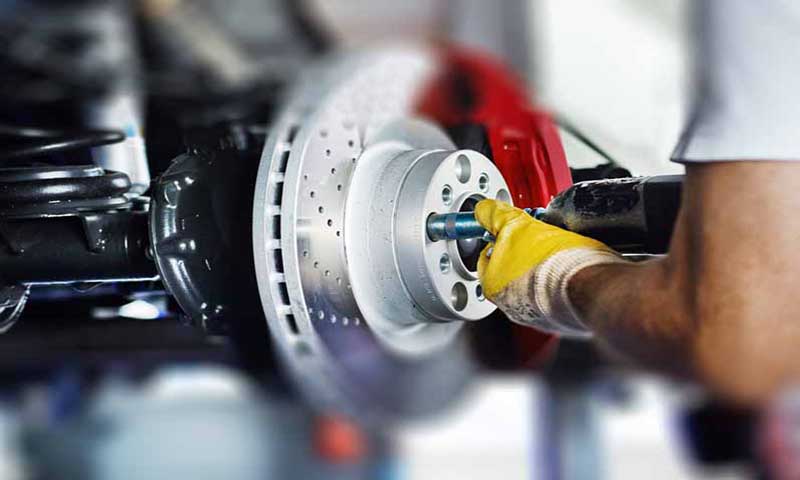Brake Repair
Brake Pad Replacement and Brake Repairs
Brake pads and discs are the most safety-critical components on your car. They are subjected to enormous forces and pressures, having to withstand and dissipate temperatures of up to 800 degrees celcius. So it’s no wonder they need regular inspection and replacement.
Worn or faulty brake pads can lead to damaged discs, meaning there’s a greater chance of losing control during hard braking.
If you tend to use your car for short journeys, it is likely that you will wear the brakes down quicker than if the car is used regularly for longer trips.
Brake light warning symbol on dashboard
Strange pedal travel or pedal feel
Metallic noise when braking
Worn pads
Leaking brake fluid
Pulling to the left or right when braking

How do you know if your vehicle needs the Brake System checking?
Strange Sounds when Braking
A metallic noise when braking – this suggests that the brake pads have worn down and it is advised that you have your brakes pads checked and replaced.
Pulling to the left or right when braking – this normally indicates a brake pad not releasing from the brake disc or issues with the brake’s hydraulics.
Two other brake-related scenarios that could cause a car to pull would be a collapsed brake hose that would cause your calipers to move unevenly when applying the brakes, or uneven brake pads, which would also apply different amounts of pressure to different wheels.
Pulling, however, doesn’t always indicate a problem with the brakes. The cause could also come from unevenly inflated or worn tyres, poor alignment or a problem with your vehicle’s suspension.
Pedal Feel
– A soft pedal, (which travels practically to the footwell before engaging), could indicate a problem with the hydraulic system. Possibly air in the brake line, an air leak or a brake fluid leak.
– Brake pedals that bite immediately could indicate a warped disc, dirt or moisture contaminating the brake fluid.
– Long pedal travel with ineffective braking may indicate you have a brake line obstruction or a problem with the vacuum system.
Most modern vehicles are fitted with sensors to detect when the front or rear brake pads are getting critically low. A brake warning light will show on the car’s display board.
How long do brake discs last?
The life expectancy of brake discs differ from vehicle to vehicle.
Front brake discs wear away from friction caused by the brake pads eventually becoming too thin, resulting in overheating and poor braking capacity.
How long do brake pads last?
A set of brake pads can last from anywhere between 25,000 and 60,000 miles possibly more. A major factor in the lifespan of the pads is down to the way the vehicle is used and driven.
Type of brake pads
The material a brake pad is made from can affect how long your brake pads will last:
- Organic car brake pads are generally the cheapest and won’t last too long.
- Low metallic brake pads can be noisy but have a slightly longer life expectancy than organic.
- Semi-metallic brake pads have a long expectancy.
- Ceramic brake pads last longer than other materials and are more resistant to wear but are very expensive.
Brake Pad Replacement and Brake Repairs
in Solihull
Cranmore Garage
Call us
0121 709 0700
